Hosted by Claire Musters
This month I’m reading…
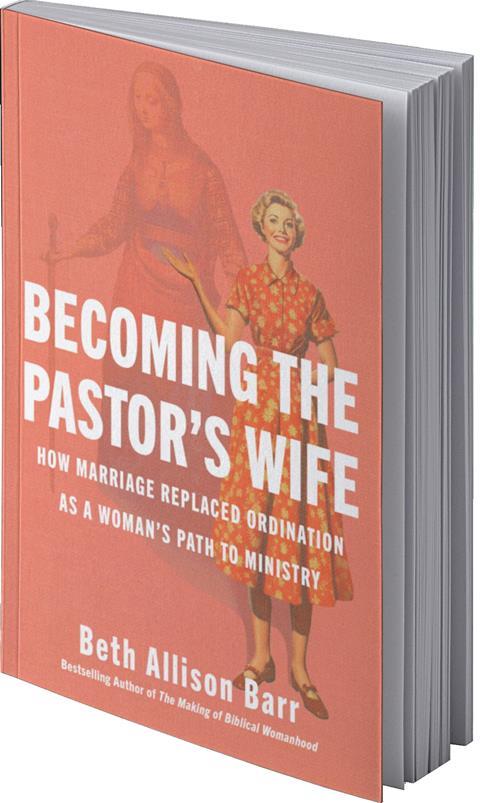
Becoming the Pastor’s Wife: How marriage replaced ordination as a woman’s path to ministry
By Beth Allison Barr (978-1587435898, Brazos Press)
Beth, a medieval historian and wife to a Baptist pastor, has deep historical and biblical knowledge, as well as personal experience, which she brings meticulously to this new book. Her previous 2021 title, The Making of Biblical Womanhood, interweaves Church history with her own story and that of the #ChurchToo movement and abuse scandals to challenge what is seen as biblical womanhood in many evangelical circles today (ie submissive wives and homemakers). This latest title builds on that to focus in on the role of the pastor’s wife throughout Church history, and how it became more prominent as female ordination decreased. In the book, Beth traces ancient, medieval, Reformation and modern Church history, highlighting how leadership opportunities existed for women throughout history – indeed, right up until the second half of the 20th century which is when the rise of evangelical notions about what women can and can’t do really began to affect day-to-day church life.
Why do you think that churches today often expect a pastor’s wife not only to support her husband in his role but participate in it alongside him? And why has that not happened with the husbands of female clergy?
I can give a short answer for this: gender theology/expectations. Women are expected to centre their lives on men; men are criticised for centring their lives on women (think about phrases like ‘hen-pecked’ and even accusations made by pastors like Mark Driscoll that men whose wives work are lazy). The expectation is that men will have their own careers and therefore are not expected to have the bandwidth to support their wives’ ministry; women are expected to make their jobs secondary to the careers of their husbands – and this is magnified with the pastor’s wife role.
You indicate that when you became a pastor’s wife you were a complementarian (believing men and women are spiritual equals but have different roles). Then, through painful experience, you realised many within contemporary evangelicalism believed that supporting women in church leadership signalled “the slippery slope leading to apostasy”. What effect did that have on you as both a pastor’s wife, but also an historian?
It made me realise the urgency of correcting history as well as of affirming women in ministry. So many in the Church have been convinced that women in ministry are heretical when the opposite is true: women in ministry are firmly orthodox both in Church history and in the New Testament world. While it is certainly true that patriarchy exists in the Bible, including in New Testament texts that tell some women in some places to be silent, it is also true that New Testament women exercised leadership positions, and were commended for these roles by Paul himself. Women need to know that if they feel God calling them to ministry, that it is a valid calling. They aren’t being prideful because God has gifted them as preachers and teachers. Women need to know that they are made fully in the image of God, just like men, that the Church is better when women and men work together as co-heirs, co-workers and co-equals. Women need to know that spiritual gifts are not gendered, and that limiting women limits God.
You cite examples of women performing ministerial roles in churches historically, and suggest the likelihood is that they were ordained and give examples of those who had authority over both women and men. Could you explain how the redefinition of what ordination meant and who could be ordained changed over a period of around 200 years?
Ordination is one of those words that we think we know what it means, and I suspect that if someone asked, we would give a definition. I think the variety of definitions we might offer, though, would surprise us. Is ordination the confirmation of a call to ministry broadly or to a specific position? Does it bestow spiritual power that enables the minister to perform miracles that ordinary people cannot? If Protestantism champions the priesthood of the believer, then why is ordination even necessary? Is it simply a ceremony of recognition or a ceremony necessary for conferring sacred authority?
Part of our muddle about the word is the simple fact that ordination does not have a stable historical meaning. It has shifted over time. In the early medieval world, ordination confirmed a specific job. She was ordained to be an abbess at a particular monastery; he was ordained to serve as bishop over a specific location. This changed during the reforms of the Central Middle Ages, and, by 1215, ordination was less about recognising a specific job and more about recognising a sacred status. As it became more closely associated with sacramental power (especially transforming the bread and wine at the altar into the body and blood of Christ), it became more closely associated with the celibate male body. Only a set-apart male body (free from the sinful taint of female sexuality) was deemed worthy of handling the perfect male body of Christ. Thus, it took 1,000 years for ordination to the priesthood to become definitively linked to the sacrament at the altar and gendered masculine – although it is important to note that women in the medieval Church continued to be ordained as monastics.
But then, with the emergence of Protestantism, the definition of ordination shifted again! Today, while it is broadly considered to confer holy orders (of some sort), who gets to be ordained, how they are ordained, what the duties of an ordained person are etc, shift from faith group to faith group. And modern shifts in the definition correlate with changing tax laws, too (talk about a very unbiblical influence on what we consider to be a biblical role).
So, to clarify, if someone states that women have never been ordained, they are wrong. If someone states that women have never been ordained to a position with spiritual authority over men, they are wrong. If someone states that ordination has always been defined by performing the sacrament at the altar, they are wrong. If someone states that their narrow recognition of ordination as defined by their faith group from a particular historical moment has never ordained women (and therefore women within their particular church can’t officiate at the altar), they might possibly be right.
Just remember that everything – including ordination – has a history. Defining it often has very little to do with the Bible.
Why did female sexuality become such a problem for medieval reformers? And could you explain how the new role of pastor’s wife “emerged from the medieval campaign for clerical celibacy”?
Because celibacy had become an official requirement for priests with sacramental authority during the Central Middle Ages (1000-1300), clergy had to put away their wives or reject marriage altogether. This campaign wasn’t ever completely successful – but it did set the standard for priesthood (a celibate man) and reinforced the negative portrayal of women who shared clerical beds. Just as the rejection of marriage became a hallmark of medieval clergy, getting married became a hallmark of 16th-century reformers. The pastor’s wife literally embodied evangelical resistance to medieval Catholicism. Her visible presence alongside a pastor-husband buttressed his religious authority and emboldened the early spread of Protestantism. Thus, for really the first time in Western history, the act of marriage became a part of ministerial identity.
You say that perhaps “it is time for the white church to sit down and learn from its Black sisters and brothers on their terms, in their space”. You go on to say that white evangelical culture has “shifted the trajectory of the role of the Black pastor’s wife” but that it is still in that role that you feel there is hope for the future. Could you expand on that?
I found significant hope from my research into the Black Church. What I found is that the Black Church in practice treats women more as co-equals with men, including in the pastor’s wife (or First Lady) role, even while sometimes maintaining a façade of complementarian-light theology. For example, pastors’ wives’ books written by Black women emphasise their independence, the use of their spiritual gifts in preaching and teaching and mostly do not pretend the pastor’s wife role is biblical. When they do emphasise deference to their husbands, it seems more about maintaining appearances and garnering public respectability. As more than one suggested, Black men do not garner respect by white culture, so it is important for the pastor’s wife to lift her husband up. More than anything, my research into the Black Church really showed me how culturally constructed the pastor’s wife role is. She models complementarianism in a white evangelical culture that has enshrined complementarian theology; she models Black strength and dignity for a church that only exists because of white racism.
Beth Allison Barr on: The books that have changed my life
So many books have influenced me. I have chosen books from three different genres that all have influenced my writing.
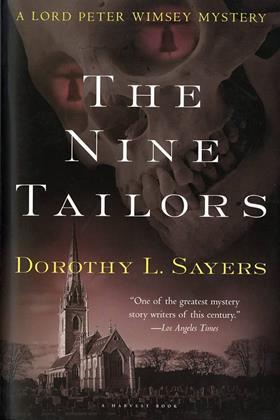
The Nine Tailors by Dorothy L Sayers
This is one of the most brilliantly written fiction books. For those of you who do not know, Sayers was trained as a medieval scholar before she became known as a professional writer and, really, public theologian. The Nine Tailors was the first book I remember reading in which the author wove her academic expertise into the story.
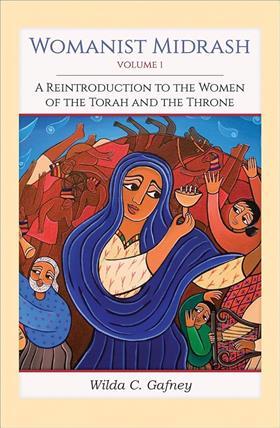
Womanist Midrash by Wilda Gafney
I have not only read this book more than once, but I teach it in my graduate seminars and in my Sunday school. This book gave me new eyes to more realistically see women in the Bible – to understand the grim impact of patriarchy on women in the Old Testament world even while finding God’s liberation for women, too.
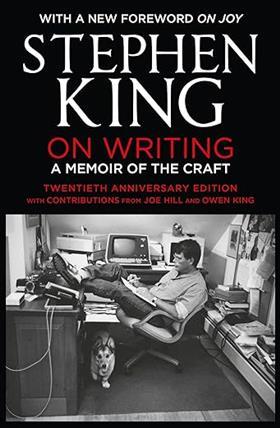
On Writing by Stephen King
This is my favourite book on writing. You will have to pardon the coarse language (sorry, that is Stephen King), but – through both instruction and by example – he taught me to be a better writer.












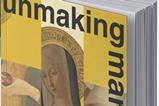
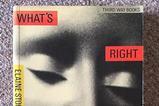


















No comments yet